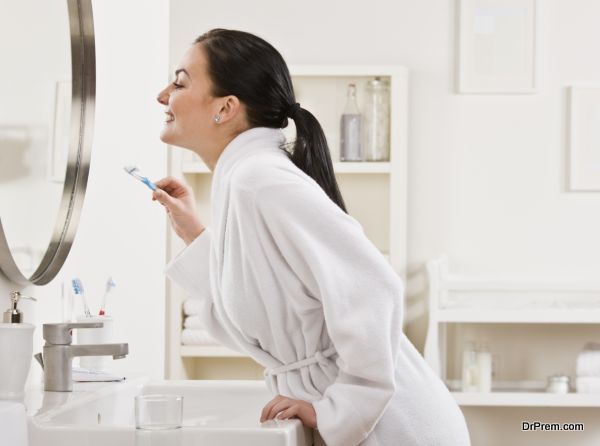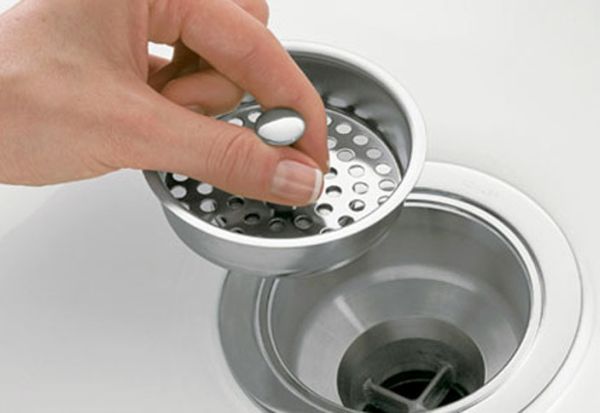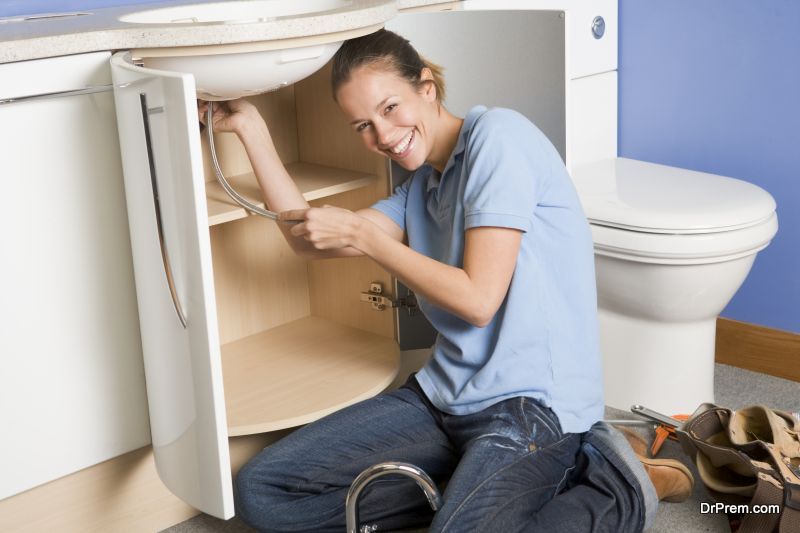By taking out a few minutes every couple of weeks, you can keep your home’s plumbing system operating efficiently and at its best. While there are some tasks best left to a professional plumbing repair service, you can still do plenty of things on your own to bring out the best in your home’s intricate system of sewer and water pipes.
Pay Close Attention to What You Put Down Your Drains
Invest in quality drain covers or screens to keep hair, food scraps and the likes from finding their way down the drain where they can lead to bothersome clogs. Be sure you clean your screens and drain covers of anything that might be on them to keep them from smelling and to make your sinks look that much cleaner. Avoid putting grease down the drain, even when it’s hot, because it solidifies when it cools, which can lead to clogs over time.
Lower Your Water Pressure

You likely don’t need as much water pressure as you might think to stay comfortable while showering, washing your hands and cooking. While high water pressure is nice, it also stresses your pipes over time, which reduces their overall life. To get an accurate measure of your home’s water pressure, you can buy a hose bib gauge, attach it to an exterior spigot and let the water flow. Normal pressure measures between 40 and 85 psi. If yours measures above that, think about calling a professional to lower your pressure with a pressure reducer. Pressure reducers do cost money, but they can also save you money in the long run.
Keep an Eye Out for Small Leaks and Other Small Plumbing Problems
Even though small leaks may not seem consequential, they can lead to massive overspending. This is because those small leaks can be a sign you have a larger problem somewhere in your plumbing system. Besides small leaks, you should also keep an eye out for toilets that tilt back and forth, damp cabinets and drips in your fridge. You’ll want to call a plumbing expert to come out and take a look at your fixtures, appliances or cabinets as soon as possible.
Test Your Water Softness
Water that has a lot of minerals in it can eat away at your plumbing and increase your water pressure. One visible indication of hard water is a gritty white buildup on your faucets and/or showerheads. You can also check out the most current water test report from your municipal water service. You can buy a water softener on your own, but you’re better off having it installed by a professional plumber. Water softeners use either sodium to break up minerals or an electromagnetic pulse. If you do choose a sodium water filter, think about adding a pre-filter, which is likely to add roughly $100 more to the total cost of the job. The benefit of a pre-filter is that your water will be even cleaner and your pipes won’t be as stressed, which extends their overall life.
Refrain From Using Chemical Clog-Removal Products

There are plenty of chemical products designed to combat clogs. One thing to bear in mind before using them is that while they can most certainly eat their way through any clogs you might have, they can continue eating away at your pipes once the clog is gone. While pouring hot water down your pipes can dissolve some clogs, be sure you follow that hot water up with cold water so the hot water doesn’t damage your PVC piping. Know that hot water doesn’t take care of all clogs.
Do yourself and your plumbing and sewer systems a favor and perform routine maintenance on your own every now and then. Additionally, it’s not a bad idea to have your plumbing system inspected by a professional at least once a year.
Article Submitted By Community Writer




